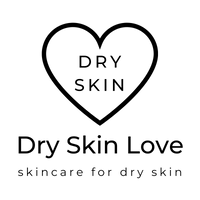Orange essential oil has skincare benefits.
Orange essential oil is widely used in skincare products for its fresh, pleasant citrus aroma.
Orange essential oil and its major component limonene have cleansing activity, antioxidant activity and are permeation enhancers.
This article will discuss:
- What is orange essential oil?
- Why is orange essential oil used in skincare?
- Aroma
- Cleansing activity
- Antioxidant activity
- Permeation enhancer
- Is orange essential oil safe?
- Summary
- References

What is orange essential oil?
Orange essential oil, also known as sweet orange essential oil, is extracted from the peels of the orange Citrus sinensis.
Orange essential oil is composed of ~95% D-limonene and other minor compounds, including beta-myrcene, linalool, alpha-pinene, sabinene and others.

Why is orange essential oil used in skincare?
There are many benefits of orange essential oil in skincare.
Orange essential oil is used in skincare for its aroma, cleansing activity, antioxidant activity and as a permeation enhancer.
1. Aroma
Orange essential oil smells delicately sweet and tangy with the aroma of fresh cut juicy oranges.
As orange essential oil ages and oxidizes, the aroma fades. So fresher orange essential oil smells the best. You can almost smell the sparkles in very fresh orange essential oil!
Orange essential oil is in the citrus aroma family and is considered a top or a head note in perfumery.
Orange essential oil smells great on its own, but it also blends well with other aromas, especially other citrus essential oils like bergamot, grapefruit and neroli blossom. It can add sweetness to formulas and help smooth out harsh aromas.
Orange essential oil can also be used as a masking agent, and cover-up unpleasant odors.
The aroma of orange essential oil is very calming and smelling orange essential oils may reduce anxiety and improve mood (Goes et al, 2012; Jafarzadeh et al, 2013; Lehrner et al, 2000; Lehrner et al, 2005; Rashidi-Fakari et al, 2015).

2. Cleansing activity
Orange essential oil is composed of ~95% D-limonene, which is used as a cleanser and a degreaser.
Orange essential oil and limonene are gentle, yet powerful cleaners that are reputed to effectively remove grease, tar, oil, soot, grime and soils.
Limonene is a cleanser and a degreaser. Orange essential oil and limonene are used as solvents in water-free hand-cleansers at a concentration of about 10% (Karlberg et al, 1997).
Its mildness has made orange essential oil and limonene popular ingredients in water-free hand soaps, as they not only cleanse, but also leave hands smelling fresh.

3. Antioxidant activity
Orange essential oil and its main component limonene have antioxidant activity.
Antioxidants work by preventing free radical damage.
Free radicals are unstable molecules or atoms that can cause damage.
Free radicals are generated by daily environmental damage - such as UV radiation from the sun and air pollution.
Antioxidants can stop unstable free radicals.
Orange essential oil has demonstrated antioxidant activity (González-Mas et al, 2019; Lin et al, 2021; Li et al, 2022),
Limonene also has antioxidant activity (Anandakumar et al, 2021).
Antioxidants can increase the shelf life of skincare products by keeping the ingredients fresh longer. For instance, antioxidants prevent fat and lipid oxidation in carrier oils.
Orange essential oil and limonene may increase product shelf life (Bora et al, 2020; Xu et al, 2021).
Limonene has been shown to inhibit lipid oxidation and is being investigated to extend shelf-life in food products (reviewed by Bora et al, 2020).

4. Permeation enhancer
The delivery of active ingredients into the skin is a challenge.
Permeation enhancers help the skin absorb active ingredients.
More specifically, permeation enhancers are substances that improve the absorption of drugs or active ingredients through the skin by increasing skin permeability.
Orange essential oil is made of ~95% D-limonene, which is a permeation enhancer (Mendanha et al, 2017) and can boost absorption of nutrients and active ingredients (Valgimigli et al, 2012).
Learn more: Limonene is a Permeation Enhancer

Is orange essential oil safe?
Citrus essential oils are non-toxic, non-mutagenic, and non-carcinogenic (Tisserand et al, 2014; Dosoky 2018).
Orange essential oil has GRAS (generally recognized as safe) status. However, there is a possible skin sensitization issue if old or oxidized oil is used (Tisserand et al, 2014).
Expressed orange oil was neither irritating nor sensitizing to 25 volunteers when tested at 8 and 100% (Opdyke et al, 1974), whereas it caused sensitivity to 0.13% of total dermatitis patients when tested at 2% (Rudzki et al, 1976).
Orange essential oil is composed of ~95% D-limonene.
Pure limonene is safe for most people to use, when it is properly diluted.
Old or oxidized limonene may cause irritation in people with dermatitis or other skin issues.
Always choose fresh products and avoid the use of old or expired products that contain limonene.
Read more: Is Limonene Safe for Skin?
 Summary
Summary
Orange essential oil is widely used in skincare products for its fresh, pleasant citrus aroma.
Orange essential oil and limonene have cleansing activity and are common ingredients in cleansers, especially hand cleansers.
Orange essential oil and limonene also have antioxidant activity and protect ingredients against oxidative damage. Orange essential oil and limonene may also extend product shelf life of skincare products.
Orange essential oil and limonene are permeation enhancers and may boost absorption of active ingredients into the skin, including vitamins.
Orange essential oil and limonene are safe for most people to use in skincare.

References
Bora H, Kamle M, Mahato DK, Tiwari P, Kumar P. Citrus Essential Oils (CEOs) and Their Applications in Food: An Overview. Plants (Basel). 2020 Mar 11;9(3):357.
Int J Mol Sci. 2018 Jul 5;19(7):1966.
Anal Chim Acta. 2017 Nov 1;992:55-66.
Goes TC, Antunes FD, Alves PB, Teixeira-Silva F. Effect of sweet orange aroma on experimental anxiety in humans. J Altern Complement Med. 2012 Aug;18(8):798-804.
Front Plant Sci. 2019 Feb 5;10:12.
Jafarzadeh M, Arman S, Pour FF. Effect of aromatherapy with orange essential oil on salivary cortisol and pulse rate in children during dental treatment: A randomized controlled clinical trial. Adv Biomed Res. 2013 Mar 6;2:10.
Karlberg AT, Magnusson K, Nilsson U. Influence of an anti-oxidant on the formation of allergenic compounds during auto-oxidation of d-limonene. Ann Occup Hyg. 1994 Apr;38(2):199-207.
Karlberg AT, Dooms-Goossens A. Contact allergy to oxidized d-limonene among dermatitis patients. Contact Dermatitis. 1997 Apr;36(4):201-6.
Kumar KJS, Vani MG, Wang SY. Limonene protects human skin keratinocytes against UVB-induced photodamage and photoaging by activating the Nrf2-dependent antioxidant defense system. Environ Toxicol. 2022 Sep 5.
Lehrner J, Eckersberger C, Walla P, Pötsch G, Deecke L. Ambient odor of orange in a dental office reduces anxiety and improves mood in female patients. Physiol Behav. 2000 Oct 1-15;71(1-2):83-6.
Lehrner J, Marwinski G, Lehr S, Johren P, Deecke L. Ambient odors of orange and lavender reduce anxiety and improve mood in a dental office. Physiol Behav. 2005 Sep 15;86(1-2):92-5.
Li C, Cai Q, Wu X, Tan Z, Huang S, Wei C, Zhang W, Chen Z, Zhang L, Xiang H. Variation in Compositions and Biological Activities of Essential Oils from Four Citrus Species: Citrus limon, Citrus sinensis, Citrus paradisi, and Citrus reticulata. Chem Biodivers. 2022 Apr;19(4):e202100910.
Molecules. 2021 Jun 4;26(11):3412.
Masaki H. Role of antioxidants in the skin: anti-aging effects. J Dermatol Sci. 2010 May;58(2):85-90.
Mendanha SA, Marquezin CA, Ito AS, Alonso A. Effects of nerolidol and limonene on stratum corneum membranes: A probe EPR and fluorescence spectroscopy study. Int J Pharm. 2017 Oct 30;532(1):547-554.
Opdyke, D.L.J. Monographs on fragrance raw materials. Food Cosmet. Toxicol. 1974, 12, 807–1016.
Rashidi-Fakari F, Tabatabaeichehr M, Mortazavi H. The effect of aromatherapy by essential oil of orange on anxiety during labor: A randomized clinical trial. Iran J Nurs Midwifery Res. 2015 Nov-Dec;20(6):661-4.
Rudzki, E., Grzywa, Z., Bruo, W.S. Sensitivity to 35 essential oils. Contact Dermat. 1976, 2, 196–200.
Tisserand, R., Young, R. Essential Oil Safety, 2nd ed.; Elsevier: New York, NY, USA, 2014.
Turek C, Stintzing FC. Stability of Essential Oils: A Review. Comprehensive Reviews in Food Science and Food Safety. 2013 Jan;3:40-53.
Valgimigli L, Gabbanini S, Berlini E, Lucchi E, Beltramini C, Bertarelli YL. Lemon (Citrus limon, Burm.f.) essential oil enhances the trans-epidermal release of lipid-(A, E) and water-(B6, C) soluble vitamins from topical emulsions in reconstructed human epidermis. Int J Cosmet Sci. 2012 Aug;34(4):347-56.
Food Chem. 2021 Sep 1;355:129508.
Author Information

Dr. Natasha Ryz is a scientist and formulator with over a decade of experience. She blends nature and science to create high-performance skincare for dry skin.
She trained in Organic Skincare Formulation at Formula Botanica and the School of Natural Skincare, earning 200+ hours of specialized education and a diploma in Beauty Brand Business Management.
With a PhD in Experimental Medicine from UBC and 15+ years of research in microbiology, immunology, and biochemistry, Dr. Ryz ensures every formulation is both effective and luxurious, delivering results with a rich sensory experience.

